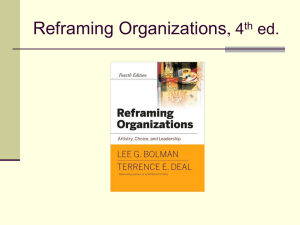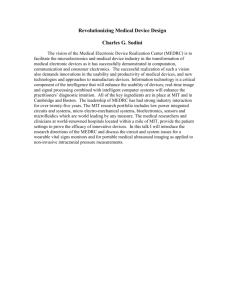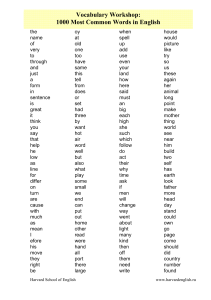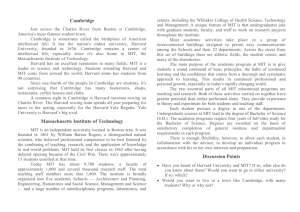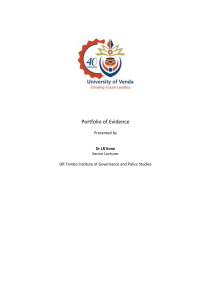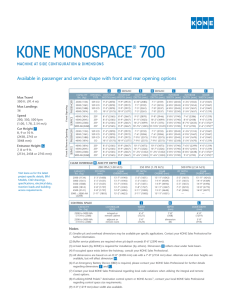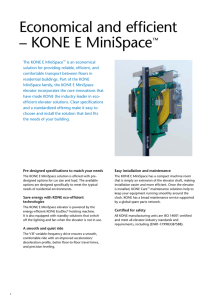MIT 1.46 Strategic Management
advertisement
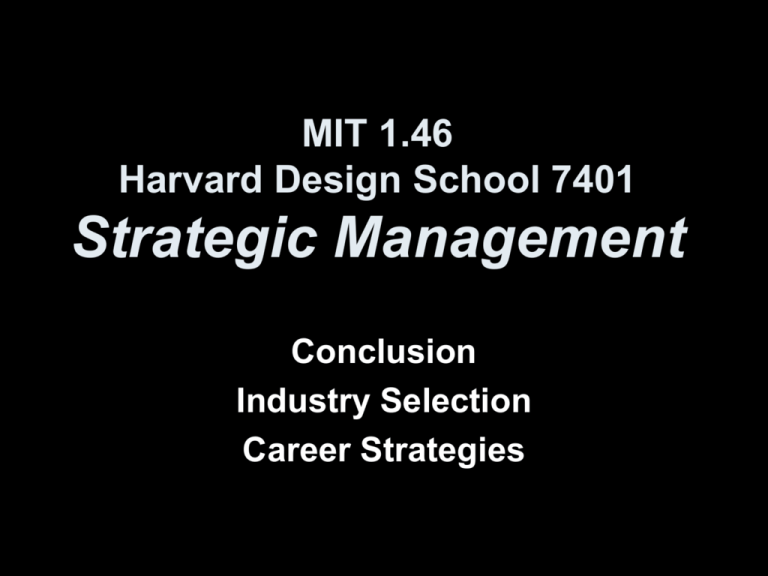
MIT 1.46 Harvard Design School 7401 Strategic Management Conclusion Industry Selection Career Strategies Objectives • Presentation: – Review Lessons: • Cases and Concepts – Careers: • Help Students Plan Strategically • Discussion, Q & A • 2:30 - Course Evaluations December 9 & 11, 2002 Strategic Management Conclusions and Context 2 Cases in the Industry Value System • Owner / Operators – Poland’s A2 Motorway • Designers – TAC The Architect’s Collaborative – DESTINI • Constructors – Young Canada – Del Webb – Savannah West (Willy Welsh) – B2Bilt • Subcontractors and Building Products Manufacturers – KONE: The Monospace Launch in Germany – Arborite – Wood Structures, Inc. – Otisline December 9 & 11, 2002 Strategic Management Conclusions and Context 3 Cases – Key Points • • • • • • • • • • • Poland’s A2 Motorway -- The Money; The Players Young Canada -- What to sell to whom? Del Webb -- Adapting to changes in markets and leadership Savannah West (Willy Welsh) -- How to grow beyond one person? B2Bilt -- How to keep the benefits of innovation TAC – How to match staffing, sales, and skills DESTINI – 3D Modeling tied to Databases; Impact on System KONE: The Monospace Launch in Germany – Signaling Differentiation; How to Price Arborite -- How to implement a low cost strategy Otisline - Overcoming fragmentation; “Big Wins” with information technology Wood Structures, Inc. - How to put marketing, manufacturing, production, human factors all together December 9 & 11, 2002 Strategic Management Conclusions and Context 4 Strategy Concepts 1. 2. 3. 4. 5. 6. 7. 8. 9. 10. 11. 12. Purpose of Strategic Planning Industry Value System Reward, risk, roles Steps in planning Market Segmentation Segment Attractiveness (5 forces) Generic Strategies Low Cost / Differentiation Strategies Firm Value Chain Fragmentation: Overcome or Cope Vertical Integration How Information Gives You Competitive Advantage December 9 & 11, 2002 Strategic Management Conclusions and Context 5 A Format for Career Thinking • Construction industry • Megatrends • Demographics December 9 & 11, 2002 Strategic Management Conclusions and Context 6 About the Construction Industry: Characteristics • Huge - $4 tr worldwide • Local • Project Based • Unique end product • Hundreds of firms all working with dozens of firms • Low barriers to entry • High barriers to exit December 9 & 11, 2002 Traditional Implications • Few economies of scale • Fragmentation – (ENR 400 in aggregate < 25% of US market) • Low margins • High risk • Same in related sectors - A/E, RE Strategic Management Conclusions and Context 7 Demographics • • • • US World Population & GDP Industry Composition www.buildingvision.net BuildingVision Library December 9 & 11, 2002 Strategic Management Conclusions and Context 8 Efficiency • There will be fewer PMs and architects • Work will flow to the capable • How to be capable? – Technical skill – Judgment – Leadership effectiveness • Skill • Vision • Character • How to convey capability? – Signaling differentiation via communication and promotion. December 9 & 11, 2002 Strategic Management Conclusions and Context 9 Your Personal Strategies: • Your market segmentation plan? – Types of Services: Architect, engineer, developer, constructor? – Buyer Types: Projects and companies (civil, residential, commercial)? – Geographies? • Attractiveness of Segments? – – – – What you like What you know What cards you hold How you are differentiated December 9 & 11, 2002 -Size -Growth -Opportunity to Add Value -Competitive Structure Strategic Management Conclusions and Context 10 Timing: Segments of Careers What is your mission in the long run? What skills do you need? Who do you need to know? Don’t preclude options! What can you do in the next segment that builds on these needs, and also preserves your options? December 9 & 11, 2002 Strategic Management Conclusions and Context 11 What counts in the end: • Communication, • Capability, • Character. Strategy and technology are nice. But success is about PEOPLE. December 9 & 11, 2002 Strategic Management Conclusions and Context 12 MIT Construction Engineering and Management HARVARD Design School Strategic Management in the Design and Construction Value System macomber@mit.edu jmacomber@gsd.harvard.edu
